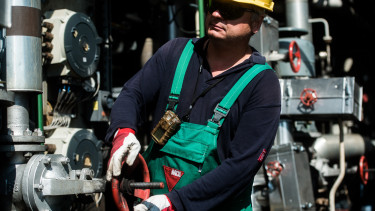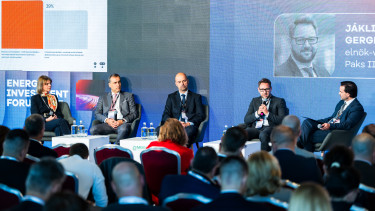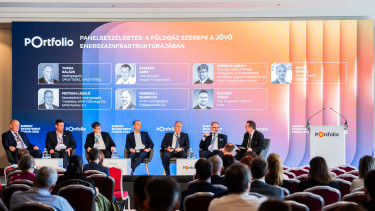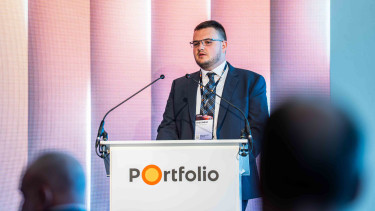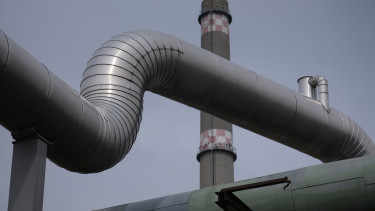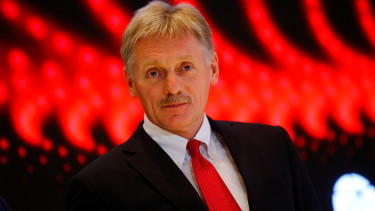Three quarters of the North Pole gone, transformation of energy sector can begin

Dr. Péter Kaderják, state secretary in charge of energy and climate policy held the first presentation at Portfolio's Energy Investment Forum 2019 conference, pointing to the importance of maintaining the balance in the triangle of climate protection, competitiveness and supply security. He added that 2.5% of Hungary's GDP should be spent on the fight against climate change.

Diána Ürge-Vorsatz, professor at Central European University and Vice Chair of Working Group III of the Intergovernmental Panel on Climate Change (IPCC), the the UN body tasked with assessing climate science, stressed that since the 1980's three quarters of the North Pole ice have been lost. She underlined, though, that there is still hope that world temperature will rise no more than 1.5 degrees Celsius (compared to pre-industrial levels) by the end of this century.

Csaba Kovács, partner at KPMG, energy & utility advisory, has also confirmed that calculating with the currently known measures and investment projects Europe will not be carbon neutral by 2050. He added that by 2030 coal-fired power plants could be completely priced out of electricity production due to a jump in the price for CO2 emission allowances.
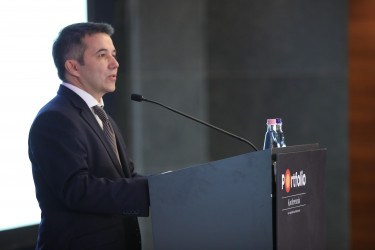
László Varró, chief economist of the International Energy Agency (IEA), says nuclear energy should be given a final chance. He stressed, though, that the European Union's goal of becoming climate netural by 2050 could be achieved even without nuclear capacities, by increasing the weight of renewables. By having nuclear power plants the world has saved 10% of carbon dioxide emissions possible by 2050.

Gergely Szabó, regional Chairman at MET Central Europe, focused on the energy company of the future in his presentation. In his view, economies of scale and adaptivity could be the key to being successful in the future. He likened investment in renewable energy to bonds, stressing regulatory risks.

Ákos Dervalics, country manager at InnoEnergy HUB Hungary, took the audience to a tour into the future, showing what kind of life consumers would be able to live if they supported businesses that promote major innovations.

Dr. György Bacsa, Senior Vice President of Group Strategic Operations and Corporate Development at Mol, highlighted Mol's 2030 strategy, which aims to reduce production of motor fuels. In respect of going greener he stressed the necessity of a gradual transition versus abrupt and shock-like measures.

Attila Chikán, Jr., Chief Executive of Alteo, underlined the importance of global competitiveness, arguing that keeping the focus on customers remains a key priority. In his view, energy production cannot be heap, green and predictable at once, you have to give up some of these.

Gábor Králik, head of the energy division at Opus, noted that the permits of the Mátra power plant will expire in the next decade, but in order to make power production cleaner a fair transformation is needed. Opus would rather move towards a network direction, as the acquisition of Titász also attests.

György Kóbor, Chairman-CEO of the Hungarian Electricity Works (MVM), underlined that 98% of the company's electricity production is already carbon-neutral, but there is a huge gap between the theoretical recommendations made by Brussels and the practices in place in Hungary.

Gergely Szabó, regional Chairman at MET Central Europe, said that although climate researchers and energy company executives all talk about the same issue, there is a huge rift between them. Reactivity could gain immense importance in the future, as it will not be Hungary that will dictate the climate policy of the European Union, he added.
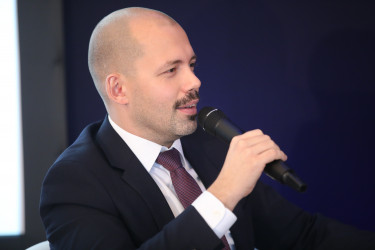
Félix Moldován, Deputy Head of Department of the Energy and Climate Diplomacy Department at the Ministry of Foreign Affairs and Trade, stressed Hungary will always have Russian gas, only its quantity can vary. Thanks to low production costs Russia can always offer cheaper gas than other natural gas sources, he added.

Franck Neel, Executive Board Member responsible for Downstream Gas at OMV Petrom, blamed regulatory uncertainties for the failure to start exploration of the Neptun field. He trusts that the new Romanian government will be able to restore investor confidence.

Róbert Fehér, Business Development Advisor at FGSZ (a member of Mol Group, the owner and operator of the majority of the Hungarian high-pressure gas pipeline network), also does not think Croatian LNG is competitive. He believes that maximum it can do is to put a cap on Russian gas prices, due to its different pricing logic.

Eszter Szekeres, Executive Director of Wholesale Operations and Optimization at MET Central Europe, end-user liquefied natural gas (LNG) replacing diesel has no commercial potential in Europe, but regasified LNG definitely does.

Kristóf Kovács, energy market advisor at leading global law firm Baker & McKenzie, is certain that Russia and Ukraine will bargain a deal for after 1 January 2020, the only question is the terms and the time frame.
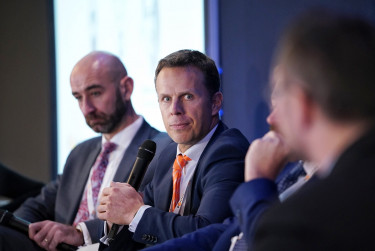
Zoltán Medvegy, Deputy Director Of Technology Development and Maintenance at Főtáv Zrt. (Budapest Dictrict Heating Company), said 38% of the heat demand of Vienna is satisfied via district heating, adding that for Főtáv the Austrian example is the trend to be followed.

Tamás Tóth, Vice President for General Affairs at the Hungarian Energy and Public Utility Regulatory Authority (MEKH), estimates that solar capacity will be between 4,000 megawatts and 7,000 MW within a few years. He also believes that meeting the 2020 objectives in relation to renewable energy might be a problem for Hungary.

András Vinkovits, Chairman-CEO of the Budapesti Power Plant Ltd., thinks a crisis could be near, as they had to operate their gas-fired power plants in the summer.

Péter Horváth, Chief Executive of the Dunamenti Power Plant, said the real value of power plants relying on gas turbine technology could be their flexibility, and he does not expect major competitive investments in the future.

Péter Lendvay, President of the Hungarian Windpower Energy Association, underlined that the end of the support period for Hungarian windpower plants is getting closer and so they will gradually get to the free market.
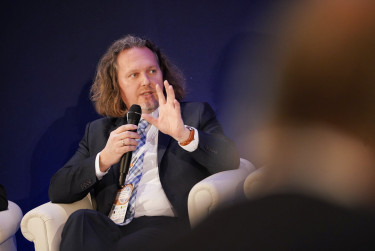
József Gaál, Production Director at MVM Green Generation, says wind farms are at risk of being decommissioned once they are no longer part of the KÁT system (Kötelező ÁTvételi rendszer – Obligatory Off-take System), as marginal costs will rise as the installations get older, and after a while it may not be worth to continue generating power.

Photos by Ákos Stiller


